- Home
- P. T. Deutermann
SPIDER MOUNTAIN Page 9
SPIDER MOUNTAIN Read online
Page 9
Like Horace, Tony Martinelli had joined us from the MCAT when it was broken up after the cat dancers case. None of us worked full-time, and the money from the contracts went proportionally to the people who put in the most hours. Most of them were filling up 401(k)s, and I took a dollar a year and the biggest office, a massive corner suite twelve feet square and overlooking a culturally intriguing back alley. With more cops finding out about our little operation, I knew we’d soon need more office space, something I’d have to attend to when I got back from helping Mary Ellen Goode. But all in all, none of us took our second “career” very seriously, and I the least of all.
I gave Tony a list of the things I needed and asked him to overnight it all to the lodge. I also asked him to see if he could find out what the street term “florist” meant in contemporary druggie circles. Then I retrieved Carrie Santángelo’s card, called her, and asked her for the GPS coordinates of Grinny Creigh’s cabin.
“I can get you those,” she said. “Should I ask why you want them?”
“Probably not,” I said. “I’m about to exercise one of the privileges of not being a cop anymore. Think deniability.”
“Deniability’s good,” she said. “Hang on and I’ll get you the coordinates. And if you’re going to go do some recon, make sure you file a flight plan.”
“With whom—Carrigan County?”
“If it were me, I’d tell Baby Greenberg. You really ice some guy with your bare hands?”
For God’s sakes, I thought, did anyone not know about it?
I put a call in to Baby Greenberg. The agents had motel rooms down the road in Murphy, and he called me back in thirty minutes. I explained what I wanted to do.
“Been nice knowing you,” the agent said.
“Can’t be that bad,” I said. “And it seems I’m stuck here for the weekend anyway.”
“Yeah, I heard.”
I sighed. “The guy was alive when I left. I think it’s all bullshit. He just wants me in custody in Robbins County.”
“So you’re gonna what? Waltz over there and solve the man’s problem for him?”
“He’s gotta catch me first, and I’m not going anywhere near Rocky Falls.”
“The closest we’ve been able to get to Grinny Creigh’s place is twenty-four thousand miles—that’s where the satellite cameras live.”
“Anybody ever try just driving up there? I mean, if you think they’re going to give you guys some shit, go get a few dozen marshals to go with you.”
“The problem is that we have no grounds for one of our usual home invasions. And no supervisor is willing to put his agents at risk of an anonymous bullet through the windshield just for a face-to-face meeting with this woman.”
“But if they shot at you, then you can bring a crowd.”
“If who shot at us? And from what crag? That’s the problem. I can’t feature Grinny Creigh taking a muzzle loader down from the mantel and opening fire on a car full of feds. But there are some guys up there who would make a wager out of it. None of us wants to die on the off chance that we can score a bust. Your theory’s good up the point of who volunteers to be the casus belli. It’s that simple.”
“Where the hell are Elliot Ness and the Untouchables when you need them?”
“We’ve been modernized,” he said. “Director’s a lawyer.”
“Then maybe my way is the best way, Special Agent. Somebody shoots at me, I’m going to shoot back. Or I may even shoot first. Give the black hats a taste of their own tactics.”
“I officially didn’t hear that,” Greenberg said. “Call me if you get back.”
“Why don’t you come along?” I asked, not entirely in jest.
“Because I’m chicken, that’s why,” Baby said.
5
On Saturday morning, I found myself working harder than I’d expected, paddling a large aluminum canoe across Crown Lake. The shepherds were onboard, curled up one in front and one behind me among all the gear. I’d left a note back in the cabin in case Sheriff Hayes came looking for me. It said simply that I was going camping for the weekend and would be back Monday midday. I’d toyed with the idea of telling Mary Ellen Goode, but then decided against it. However reluctantly, I knew it was time to begin separating myself from her life, which was a pity, because I really did like her. But if she did not have the internal fortitude to cope with the kinds of things that seemed to erupt in my wake from time to time, Ranger Bob might yet prove his theory about persistence.
The lake was gorgeous, and I now understood its name. It was an impoundment for the TVA, as were some of the other big lakes in western North Carolina, which meant it wandered around the hills and mountains for many miles following the course of a long-drowned river. There were even some islands, the tops of submerged hills, still covered with trees. The Park Service map showed where the long-lost roads and villages had been submerged back in the thirties and forties when the dams were built to send electricity to the power-ravenous atomic bomb project at Oak Ridge.
I’d arranged for Moses Walsh to drive me, the boat, and my gear to one of the overlooks on the national park side of Crown Lake, and to retrieve me again Monday at noon. I’d told him to wait an additional two hours if I was late, but not to worry about declaring me missing if I didn’t show up. I did ask Tony back in Triboro to alert Sheriff Hayes’s office if I hadn’t called in by Monday at 8:00 P.M.
Mose had offered to guide until I’d told him I was going into Robbins County. “You’re retired,” he said. “You don’t do death-wish stuff once you’ve closed out of the Job.”
“I’m just going for a little look-see,” I told him. “The real cops are all wrapped around the axle with probable cause, warrants, etc. You were in homicide—you know how it is.”
He’d grinned at me as he realized I’d checked him out. “There’s a reason we have all that constitutional stuff in place,” he’d said.
“Right, of course there is.”
“No, I’m talking the selfish reason: By jumping through all the hoops, you make sure the excitement is going to be worth the risk. I don’t believe you appreciate the danger, my friend.”
I’d thanked him for his concern and admitted that he was probably right, but the truth was, I often didn’t appreciate the danger, if only because danger seemed to grow in the telling of it.
I had a rifle, a telescope, a handheld GPS unit, head-mounted night vision gear, and minimal camping equipment. If the local fire service maps were correct, there was a straight eight-mile shot across the face of Rockslide Mountain via fire lanes to the eastern front of Book Mountain, below which the GPS coordinates of Grinny’s cabin were centered. My plan was to set up a small camp on one of the offshore islands, rest this afternoon, go in by night, set up my hide, watch all day Sunday to see what went on around the cabin and the other buildings, and then go back out Sunday night.
I awoke at just after sundown and stretched on the air mattress. My left arm was still sore from the fight the other night. The shepherds were curled up in the pine needles but opened their eyes when I moved. It was getting cooler, and there was already a pale full moon rising over the lake. I got up, washed my face, and fed the dogs. The moon was painting a wide path of light on the still waters of the lake. I lit the Primus stove and heated up one of the MREs provided by Mose. I made sure that neither my camp nor the tiny flame was visible from the shore in the direction of Book Mountain. I doubted that Grinny kept permanent sentinels out on the hills and ridges, but I didn’t want to attract attention in case I was wrong about that. The hills above the lake were getting darker by the minute, and it was easy to believe I was all alone out there.
I cleaned up, buried my trash, and then made a cup of instant coffee. Despite the execrable coffee, it was a real pleasure to watch night fall on the lake. The wind that had been cascading off the nearby ridges died down. An occasional night bird called across the lake. A distant pack of coyotes made their obeisance to the rising moon as the forest noises subsi
ded. I’d just decided to get going when the dogs sat up and stared out at the lake in the direction of the park. I had put in below the scenic overlook and then paddled more than four miles, rounding a point that now obscured my starting spot.
The dogs were staring hard into the gloom of the lake in that direction. I made sure the little stove was off and watched their ears twitching. I realized there had to be something or someone out there. I was reaching for my NVG headgear when I heard the thump of a paddle against aluminum, a splash, and then some unpleasant language. A moment later a canoe materialized out of the darkness and grounded at an odd angle on the gravel shoreline. Baby Greenberg climbed stiffly out of the canoe and massaged his knees.
“I saw that movie?” he said. “The Last of the Mo-what-the-fucks? They made this canoe shit look so easy. Damn! My knees hurt. My shoulders hurt. My hands hurt. And I cannot steer this thing worth a shit.” He staggered over some wet rocks. “Damn!”
“It gets easier if you have ten war canoes full of serious hostiles chasing your paleface ass down said river,” I said with a grin. “It’s all about motivation. How’d you find me?”
“Brother Mose told me where you started off from, and then I looked for light.” He held up the smallest night vision telescope I had ever seen.
I looked around my Spartan campsite. “What light was that?” I asked.
Greenberg pointed at the Primus stove, which was still warm from heating water for coffee. Those must be really sensitive glasses, I thought. The dogs came over to get reacquainted, while I made up another cup of coffee.
“What changed your mind?” I asked.
“Carrie Santángelo?” Greenberg said. “She called me. Said you really were going Creigh hunting. Wanted to make sure that someone besides her knew what you were doing. Asked me why I wasn’t going along. Told her I was chicken, but if she’d spend the night with me I might reconsider. She said she might go as far as phone sex, so I said okay. Then she asked me how I’d enjoyed it, and there I was. She is the best-looking slinky-toy in the whole SBI.”
I handed him the coffee. “She have any personal connection to this part of the world that you know of?” I asked.
Greenberg didn’t know. “She can surprise you, though,” he said. “Shows up at interagency meetings in one of those DKNY outfits? All the coffee-and-doughnut cops trying not to drool. But then she, like, sits at the back of the room, taking notes like somebody’s executive whatever, while some other suit sits at the table as the SBI principal. Only later you find out she’s the senior internal affairs inspector in the outfit, and the suit at the table works for her. They call her Santa Claws; that’s with a w, by the way, not a u. What’s our plan?”
“You sure you’re up for this?” I asked. “I mean, see that mountain? I’m going up to the topline of that one via the forestry fire lanes, then over to a second, higher one. Eight, nine miles by the map, and probably more with all the wrinkles. I have to go fast enough so that I can be in my hide by daylight. That’s daylight tomorrow.”
Greenberg smiled. He was starting to bounce around again. “I run ten miles every day,” he said quietly. “I won’t slow you down. You are gonna leave most of this shit here, right?”
I nodded. “I’ve got a small backpack, a camo shelter half, canteen, knife, the spotting scope, two MREs. Going up tonight, gonna watch all day tomorrow, come out tomorrow night, late.”
Greenberg pointed at the black rifle with his chin. “Whatcha got there, sport?”
“Remington 700P TWS model, .308 Win rounds.”
“We going to war?”
“We might,” I said. “Although, from what I hear, the black hats see a couple of strangers, they usually fire a warning shot to shoo them away.”
“Usually? Is that like ‘assume’?”
“Well, life’s a risky business, Special Agent. I get a warning shot, I propose to scope the hillside and blow an arm off. You have official top cover to come along on this little hike?”
Greenberg sniffed and shook his head. “Officially, I was concerned that a crusading civilian might get himself hurt going up into Grinny Creigh’s cave and irritating the demons. I can follow you at fifty yards if you like.”
I laughed. “That might not be a bad idea, you know, in case that ‘usually’ shit doesn’t work out. But mostly I want to watch for an entire day. I’ve been there once, at night, and besides Grinny, what I remember most is Rue Creigh making headlights against the screen door.”
“Tell me your impression of Grinny Creigh—you’re probably the first LE guy to lay eyes on her for a long time.”
“Carrie said that her whole deal was about power and control: She radiates that. Big woman, fat, but probably strong as an ox. Cunning, pig eyes. Accustomed to command and obedience. Didn’t move out of her chair or raise her voice particularly, but when I pissed her off, the guys hanging back in the trees started sliding toward cover, like she might have been about to pull a gun and start blasting away. Her son, Nathan, looks like he ought to have bolts in his neck. Tall, skinny, one of those ball-bearing-eyes types. I think he gives the detailed orders to the black hats once Grinny sets the general objective.”
“Modern weapons?”
“None that I saw. Lots of shotguns, but all double-barreled, nontactical. A pack of dogs that’s pretty scary. Outbuildings, but I don’t know if there’s electricity. Really primitive look and feel to the place, but bigger than most of the cabins in these parts.”
“Primitive makes for pretty good electronic security,” Greenberg said. “Nothing for us to listen to when they’re whispering messages down the mountain trails in some eighteenth-century dialect, as we have found out. How many soldiers were there the night you went up there?”
“A dozen? It was dark. And that’s not counting the two who took me there.”
Greenberg nodded. “The population outside of Rocky Falls is estimated to be something between one and two thousand people,” he said. “That’s all in. But the state demographers really don’t know shit, and the federal census bureau has zero credible data. The Creigh clan isn’t that big, but they all tend to react negatively to strangers. The decent folk just try to keep out of their way.”
“So anyone who spots us is likely to at least raise the alarm.”
“And the usual warning shots. Don’t forget them.”
I looked at my watch and roused the dogs. “Why don’t we go find out?”
“How about these canoes—hate to have them stolen while we’re up that hill there.”
“We’ll sink them, pile some rocks in them. They’re aluminum. Easy.”
“How do we get the water out, we come back?” he asked.
“Now that’s hard.”
It took most of the night to get across the aptly named Rockslide Mountain to a position about a thousand feet above the cabin on the east flank of Book Mountain. The firebreaks, which had looked smooth and open from a distance, had turned out to be overgrown and very difficult to walk through without a machete. A bulldozer would have been a great help. We’d ended up traversing the slopes by staying just inside the tree line and using the firebreaks more as a navigation aid. We’d seen some cabins down in the hollows, but few lights. There’d also been some barking dogs, but no reaction from inside the houses.
I had put my dogs’ bark collars on and then deployed them fifty yards ahead of us, where they scouted, making regular returns to touch base with their struggling humans. Greenberg had been true to his word, though, keeping up with me all the way. Our biggest problems had been night insects and not enough water. Fortunately, our perch on the side of Book Mountain included a substantial weep of spring water flowing practically under our feet, so the dogs had water and we could fill our canteens, albeit with a hefty dose of Hal-zone purifier to kill off the ubiquitous giardia bugs.
We set up our hide between two massive boulders, which looked like they were ready to unlimber from the hillside any minute now and roll directly down on the cabin complex
below. I had put the dogs on a long down above the boulders to give warning of anyone approaching from behind our position. Our own view into the cabin’s yard was partially obscured by a spotty line of pines, which also screened us, but the scope gave us a pretty good look. We counted twenty-five dogs of uncertain but uniformly large breeding in the dog lot, three even larger pigs in a pen next door, and a pair of goats wandering around eating invisible delicacies throughout the dirt yard.
Three men had come up the front meadow just after sunrise, leading a mule with bulging saddlebags. Nathan had come out of the building to the right of the main cabin. They’d talked for a few minutes, and then the men departed, leaving the loaded mule behind. Nathan took it into the barn, then came back outside. He slopped the pigs and threw chunks of something red to the dogs, causing an immediate dogfight, clearly audible from our hide. Greenberg wondered aloud if the red things were local babies while I sketched details of the cabin layout on a notepad.
The spotting telescope was a sixty-power Swarovski number shielded against making a lens flash. Greenberg pointed out that there were firing ports cut in the logs of the cabin, and that the ground behind the cabin was higher than the visible grade on either side.
“That’s been built up,” he said. “They’ve either got a basement that goes back into the hill, or maybe even a cave.”
I shivered mentally. The last cave I’d been into had been occupied by two starving mountain lions.
Greenberg said he saw a pipe running down from the springhouse to the cabin. “We ever do any kind of siege down there, we’d need to cut that pipe.”
“They have electricity that you can see?”

 The Nugget
The Nugget The Hooligans
The Hooligans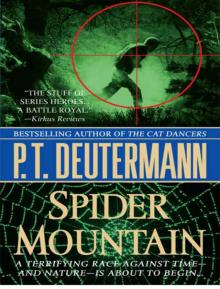 SPIDER MOUNTAIN
SPIDER MOUNTAIN![Cold Frame [retail] Read online](http://i1.bookreadfree.com/i/03/19/cold_frame_retail_preview.jpg) Cold Frame [retail]
Cold Frame [retail] Sweepers
Sweepers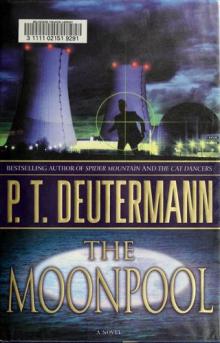 Cam - 03 - The Moonpool
Cam - 03 - The Moonpool Trial by Fire
Trial by Fire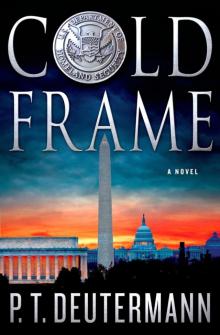 Cold Frame
Cold Frame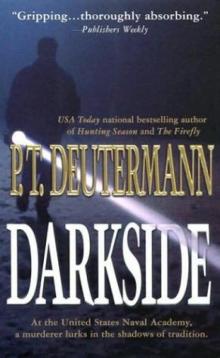 Darkside
Darkside Cam - 04 - Nightwalkers
Cam - 04 - Nightwalkers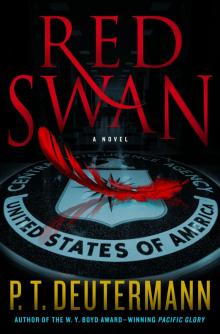 Red Swan
Red Swan The Commodore
The Commodore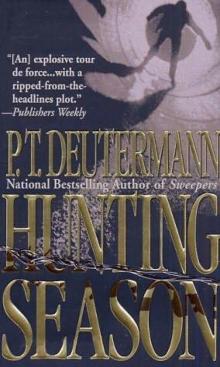 Hunting Season
Hunting Season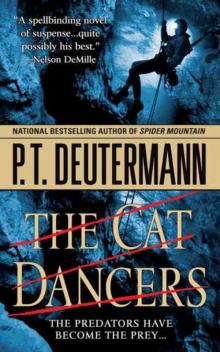 The Cat Dancers
The Cat Dancers Scorpion in the Sea
Scorpion in the Sea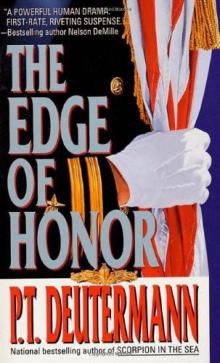 The Edge of Honor
The Edge of Honor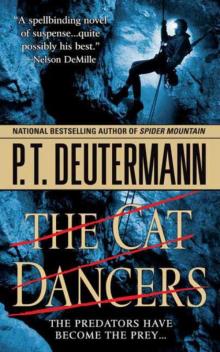 The Cat Dancers cr-1
The Cat Dancers cr-1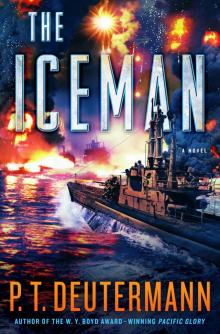 The Iceman
The Iceman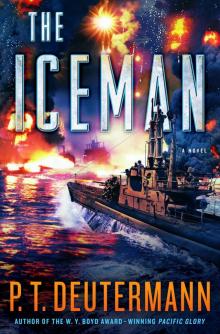 The Iceman_A Novel
The Iceman_A Novel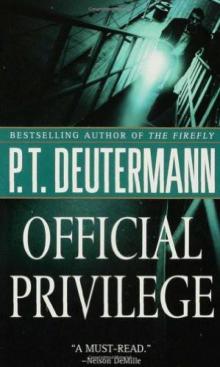 Official Privilege
Official Privilege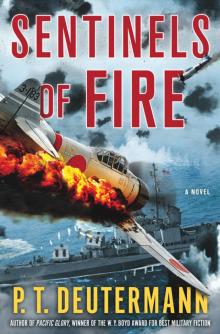 Sentinels of Fire
Sentinels of Fire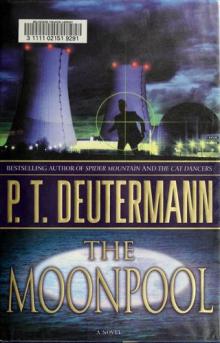 The Moonpool cr-3
The Moonpool cr-3 Nightwalkers cr-4
Nightwalkers cr-4 The Firefly
The Firefly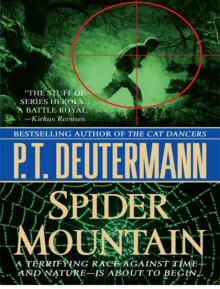 Spider mountain cr-2
Spider mountain cr-2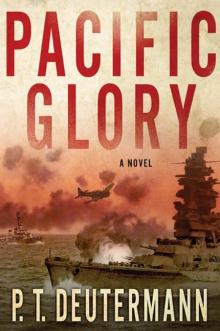 Pacific Glory
Pacific Glory The Last Man
The Last Man